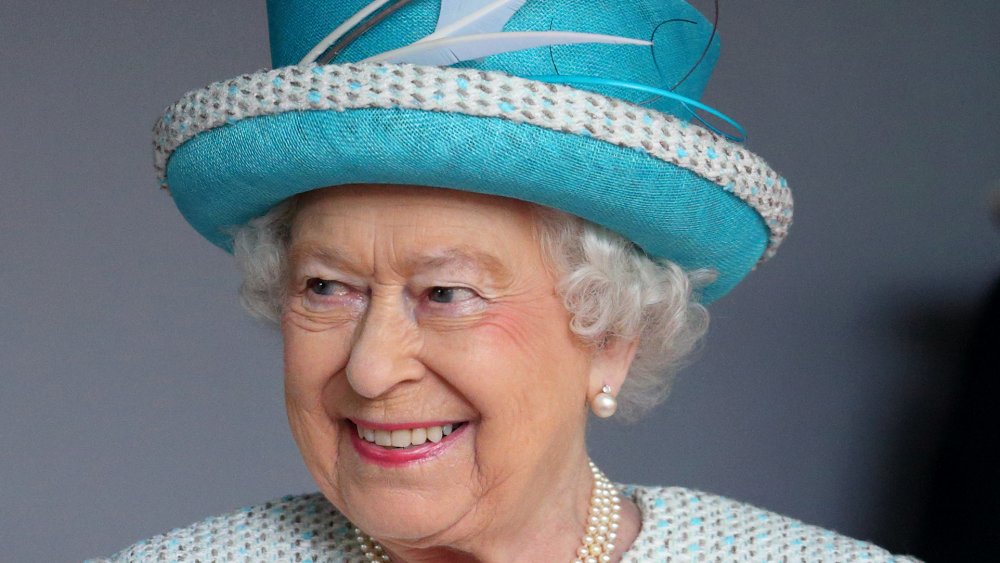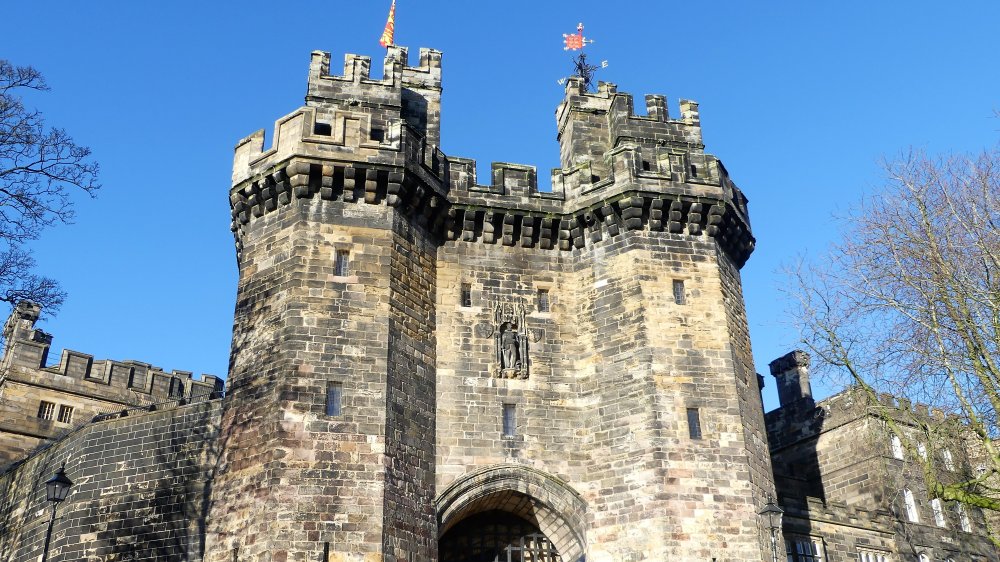The Unusual Title You Didn't Know Queen Elizabeth Held
Queen Elizabeth II is officially known under the United Kingdom title as "Elizabeth the Second, by the Grace of God, of the United Kingdom of Great Britain and Northern Ireland and of Her other Realms and Territories Queen, Head of the Commonwealth, Defender of the Faith" (via Royal Central). That's a mouthful!
While that is her official title of office, the Queen also carries many additional titles both formal, and honorary. The proper form of address for the Queen is "Majesty." The Salish people of Canada awarded her the title of "Mother of all People," the Jamaican Patios unofficially refer to her as "Missis Queen," or "The Queen Lady." While Fiji is no longer an official monarchy, the Queen is acknowledged as "Tui Viti," meaning Paramount Chief.
The strangest title, however, may be a historic convention that refers to Her Majesty as "The Queen, Our Duke." More specifically, Her Majesty the Queen is also the Duke of Lancaster (via Express).
The truth behind Queen Elizabeth's Duke title
The Duchy of Lancaster is home to Lancaster Castle, and led by the Duke of Lancaster. The historic castle on the grounds reflects over 700 years of British history including the famous Lancashire witch trials (via Lancaster Castle). The property has been held as a private family estate, passed down to the sovereign since the late 1200s. In 1399, Henry IV passed a Royal Charter that made the Duchy a separately-held entity from the Crown, and along with that, a separate source of income.
But why the title of Duke and not Duchess of Lancaster? It is the convention that titles follow common gender roles such as prince and princess, or duke and duchess in the British monarchy, but in this case, the title goes to the reigning sovereign, despite gender. Queen Victoria thought the title of Duchess of Lancaster ill-fitting for the primary power of the estate. In her mind, "duchess" referred to the spouse of the ruler, and the estate title of Duke of Lancaster was since then handed down despite gender (via Royal Central).

